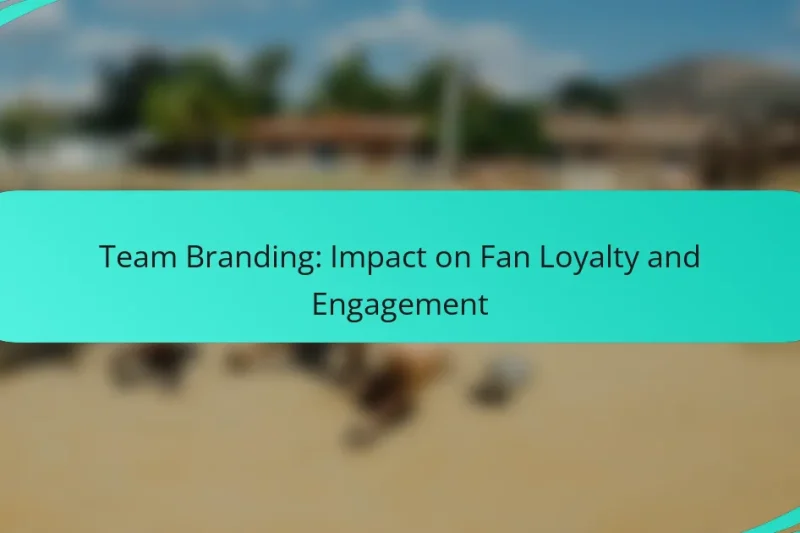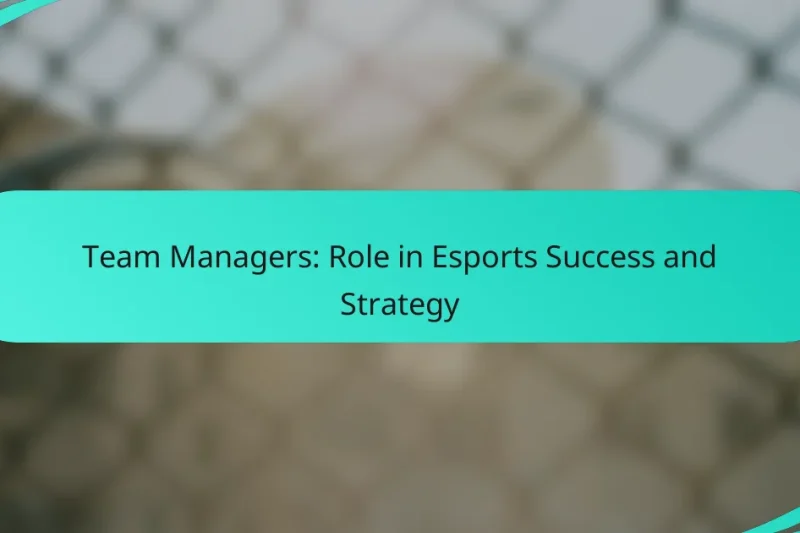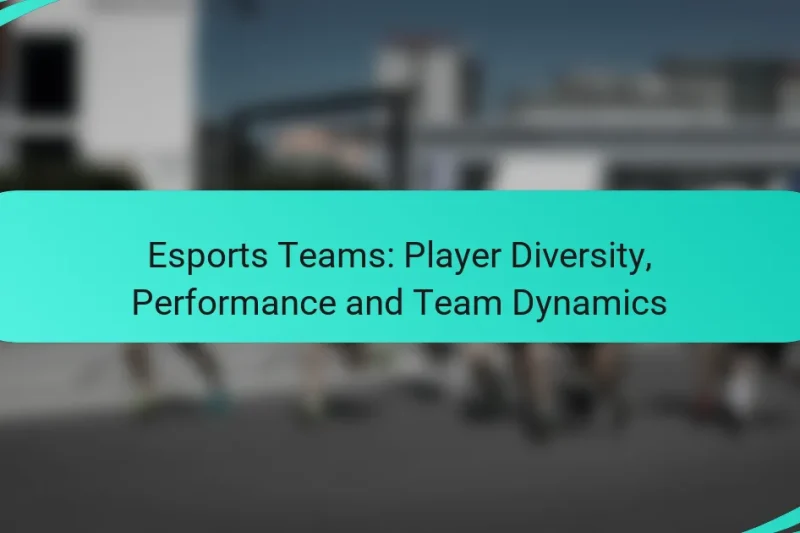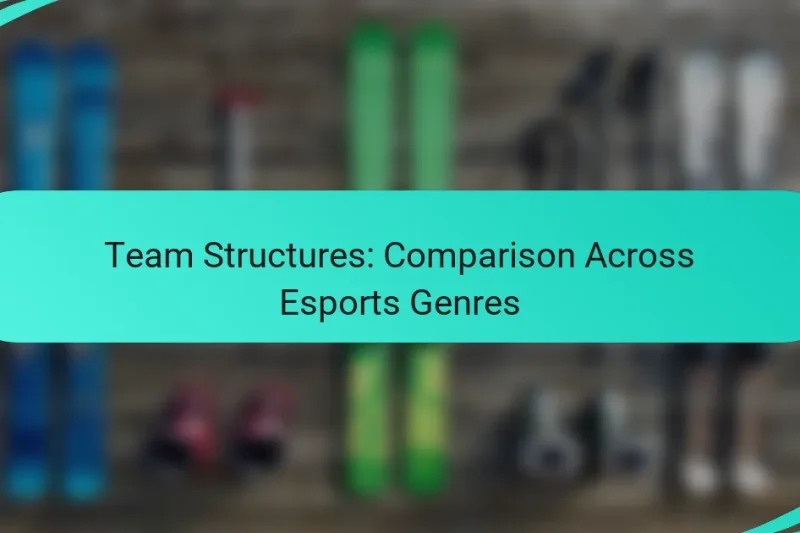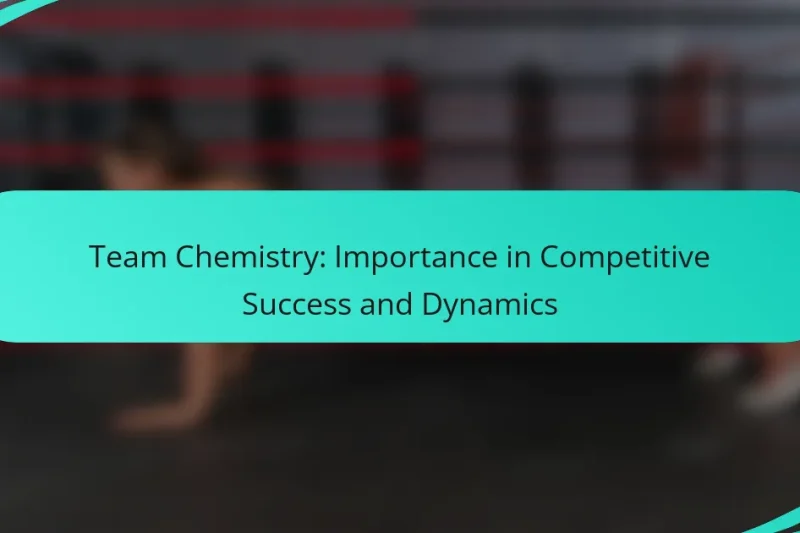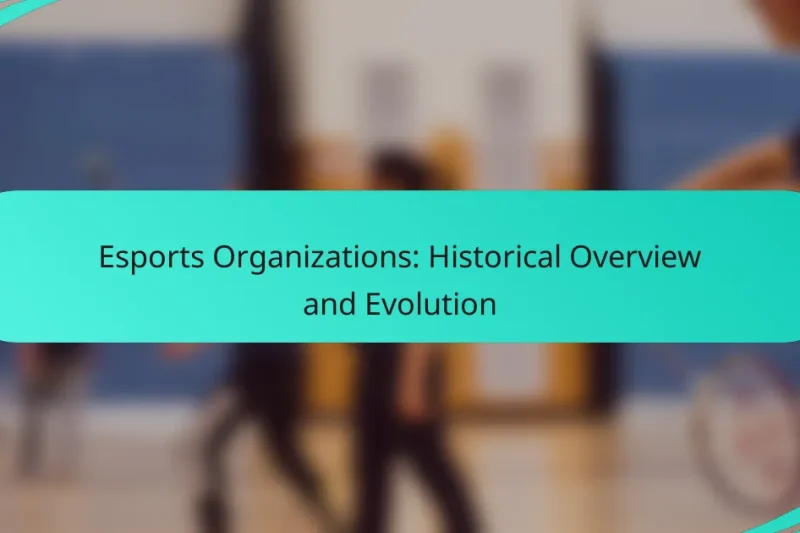Team branding plays a crucial role in fostering fan loyalty and engagement by establishing a strong … Team Branding: Impact on Fan Loyalty and EngagementRead more
Esports History and Player Profiles: Esports Teams and Organizations
Esports has evolved from casual gaming to a highly organized and competitive industry, with teams and organizations playing a crucial role in its growth. Successful esports teams are characterized by their tournament performance, strong branding, and dedicated fanbases, while effective management and talent acquisition are essential for sustainability. This introduction explores the history of esports and highlights notable player profiles and teams that have shaped the competitive gaming landscape.
Team Managers: Role in Esports Success and Strategy
In the fast-paced world of esports, team managers are vital to a team’s success, overseeing operations … Team Managers: Role in Esports Success and StrategyRead more
Esports Teams: Player Diversity, Performance and Team Dynamics
In the competitive world of esports, player diversity plays a crucial role in enhancing team performance … Esports Teams: Player Diversity, Performance and Team DynamicsRead more
Sponsorship Deals: Influence on Team Strategies and Growth
Sponsorship deals play a crucial role in shaping team strategies and fostering growth by providing vital … Sponsorship Deals: Influence on Team Strategies and GrowthRead more
Team Structures: Comparison Across Esports Genres
Team structures in esports vary widely across different genres, shaped by unique game mechanics, player roles, … Team Structures: Comparison Across Esports GenresRead more
Team Chemistry: Importance in Competitive Success and Dynamics
Team chemistry plays a crucial role in achieving competitive success by creating a cohesive environment where … Team Chemistry: Importance in Competitive Success and DynamicsRead more
Esports Organizations: Historical Overview and Evolution
The evolution of esports organizations has played a crucial role in transforming competitive gaming into a … Esports Organizations: Historical Overview and EvolutionRead more
What are the most successful esports teams and organizations?
The most successful esports teams and organizations are those that consistently perform well in tournaments, garnering both titles and significant fanbases. Their success is often measured by tournament wins, sponsorship deals, and overall influence in the esports community.
Team SoloMid (TSM)
Team SoloMid, commonly known as TSM, is a prominent esports organization based in North America. Founded in 2009, TSM has achieved success across various games, including League of Legends and VALORANT. Their League of Legends team has been particularly successful, securing multiple championships in the North American League of Legends Championship Series (NALCS).
TSM is known for its strong brand presence and dedicated fanbase, which has helped attract lucrative sponsorships. The organization emphasizes player development and has a history of nurturing talent, contributing to its sustained success in the competitive scene.
Fnatic
Fnatic is a well-established esports organization based in Europe, founded in 2004. They have a rich history in competitive gaming, particularly in titles like Counter-Strike and League of Legends. Fnatic’s League of Legends team has won multiple European championships and has made significant impacts at international tournaments.
The organization is recognized for its innovative marketing strategies and strong community engagement. Fnatic’s commitment to excellence and player welfare has positioned them as a leader in the esports industry, attracting top-tier talent and partnerships.
Cloud9
Cloud9 is a major esports organization from the United States, founded in 2013. They have a diverse roster that competes in various games, including League of Legends, VALORANT, and Counter-Strike. Cloud9’s League of Legends team has been a strong contender in North America, achieving notable placements in international competitions.
The organization is known for its focus on player support and mental health, which has become increasingly important in the esports landscape. Cloud9’s branding and community initiatives have helped them build a loyal fanbase and secure significant sponsorship deals.
Team Liquid
Team Liquid, established in 2000, is one of the oldest and most successful esports organizations globally. Based in North America, they have teams competing in a wide range of games, including Dota 2, League of Legends, and StarCraft II. Team Liquid’s Dota 2 team famously won The International 2017, solidifying their reputation in the esports community.
Team Liquid is known for its commitment to excellence and innovation, often investing in player development and training facilities. Their success in various esports titles has attracted numerous sponsors and a dedicated following, making them a powerhouse in the industry.
G2 Esports
G2 Esports is a leading esports organization based in Europe, founded in 2013. They have made a name for themselves in games like League of Legends, Counter-Strike, and Rainbow Six Siege. G2’s League of Legends team has consistently performed well in European competitions and has a strong presence at international events.
G2 Esports is recognized for its charismatic branding and engaging content creation, which resonates well with fans. Their focus on building a strong team culture and fostering talent has contributed to their ongoing success and popularity in the esports scene.
How have esports teams evolved over time?
Esports teams have transformed significantly from informal groups of players to professional organizations with structured management and branding. This evolution has been driven by the growth of competitive gaming, leading to more formalized structures and increased visibility in the sports industry.
Rise of professional leagues
The establishment of professional leagues has been a pivotal factor in the evolution of esports teams. Leagues such as the League of Legends Championship Series (LCS) and the Overwatch League (OWL) have created a framework for competition, providing teams with regular schedules, standardized rules, and a platform for fan engagement.
These leagues often feature franchise models, where teams pay for a spot in the league, ensuring financial stability and long-term commitment. This structure has led to a more competitive environment, attracting top-tier talent and increasing the overall quality of play.
Increased sponsorship and investment
As esports has gained popularity, sponsorship and investment have surged, significantly impacting team operations. Major brands across various industries are now investing in esports teams, providing them with the financial resources needed to compete at high levels.
Teams often secure sponsorship deals that can range from thousands to millions of dollars, allowing them to invest in better training facilities, coaching staff, and player salaries. This influx of capital has enabled teams to professionalize their operations and enhance their brand presence.
Expansion into mainstream media
The expansion of esports into mainstream media has further solidified the legitimacy of esports teams. Broadcasts on platforms like Twitch and YouTube, along with coverage on traditional sports networks, have brought esports to a wider audience.
This visibility has not only attracted new fans but has also encouraged partnerships with media companies, resulting in more professional production values for events. Teams now have opportunities to reach millions of viewers, enhancing their brand and creating additional revenue streams through merchandise and advertising.
What are the key factors for esports team success?
Key factors for esports team success include talent acquisition, effective management, and community engagement. These elements work together to create a competitive and sustainable organization in the rapidly evolving esports landscape.
Talent acquisition and training
Successful esports teams prioritize identifying and recruiting skilled players who demonstrate potential and adaptability. This often involves scouting talent through online competitions, local tournaments, and established leagues.
Once players are acquired, structured training programs are essential. These programs should focus on improving individual skills, teamwork, and game strategy, often involving daily practice sessions and regular performance reviews.
Effective management and strategy
Effective management is crucial for maintaining team cohesion and performance. This includes having a clear organizational structure, defined roles, and a strategic vision that aligns with the team’s goals.
Teams should develop strategies that encompass both in-game tactics and broader business objectives, such as sponsorship acquisition and market expansion. Regular analysis of performance metrics can help refine these strategies over time.
Community engagement and branding
Building a strong community presence is vital for esports teams. Engaging with fans through social media, streaming platforms, and live events fosters loyalty and enhances brand visibility.
Branding efforts should reflect the team’s identity and values, creating a recognizable image that resonates with fans. Successful teams often collaborate with content creators and influencers to amplify their reach and connect with a wider audience.
What are the historical milestones in esports?
Esports has evolved significantly since its inception, marked by key milestones that shaped the competitive gaming landscape. These events highlight the growth of esports from casual competitions to a global phenomenon with professional organizations and large audiences.
First esports tournament in 1972
The first recognized esports tournament took place in 1972 at Stanford University, featuring the game “Spacewar!” Participants competed for a prize of a year’s subscription to Rolling Stone magazine. This event laid the foundation for organized competitive gaming, showcasing the potential for tournaments in the gaming community.
While small in scale, this tournament sparked interest in competitive gaming, leading to more organized events in the following decades. It marked the beginning of a journey that would evolve into a multi-billion dollar industry.
Launch of Major League Gaming in 2002
Major League Gaming (MLG) was established in 2002, becoming one of the first professional esports leagues. MLG provided a structured platform for competitive gaming, hosting tournaments for popular games like “Halo” and “Call of Duty.” This organization played a crucial role in legitimizing esports as a professional sport.
MLG’s tournaments attracted significant viewership and sponsorship, paving the way for future leagues and organizations. The professionalization of esports through MLG set a precedent for the business model of competitive gaming, influencing how teams and players operate today.
Introduction of League of Legends World Championship
The League of Legends World Championship, first held in 2011, marked a significant milestone in esports history. This annual event quickly became one of the largest and most prestigious tournaments in the industry, drawing millions of viewers worldwide. The championship features top teams from various regions competing for substantial prize pools and global recognition.
With its engaging format and high production values, the League of Legends World Championship has helped elevate esports to mainstream popularity. It has also inspired other games to develop their own competitive events, further expanding the esports ecosystem.
What are the notable player profiles in esports?
Notable player profiles in esports highlight individuals who have significantly impacted the competitive gaming landscape. These players often possess exceptional skills, have achieved remarkable success in tournaments, and are influential figures within their respective gaming communities.
Johan “N0tail” Sundstein
Johan “N0tail” Sundstein is a prominent figure in the esports scene, particularly known for his contributions to Dota 2. As a co-founder of the team OG, he led his squad to victory in The International 2018 and 2019, making them the first team to win the tournament twice.
N0tail’s leadership and strategic thinking have set him apart as a player. His ability to adapt to various roles within the game has allowed him to excel in different team compositions, showcasing versatility that is crucial in high-stakes matches.
Beyond his gameplay, N0tail is recognized for his positive attitude and commitment to fostering a supportive team environment. His influence extends beyond the game, as he actively engages with fans and promotes the growth of esports as a whole.
